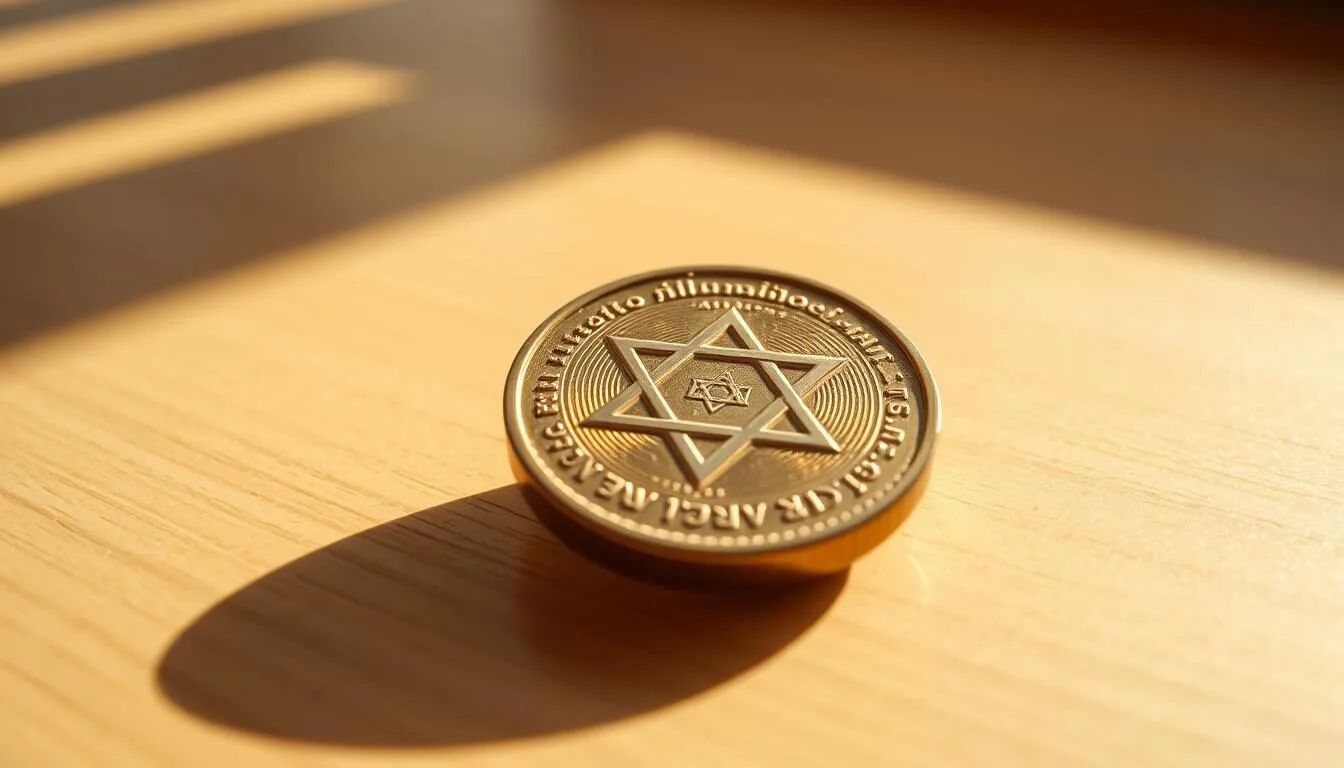✓ Accommodations✓ Flights✓ Rental Cars✓ Tours & Activities
Did you know that the average tourist spends around $1,000 per day in Israel? With such a significant expense, it’s crucial to understand the local currency and payment methods to make the most of your trip.
As you prepare for your journey to Israel, you’ll need to familiarize yourself with the Israeli New Shekel (ILS), the official currency of the country. Managing your money effectively will ensure a stress-free travel experience.
From exchanging your money to understanding the best payment methods, this guide will walk you through the essential information you need to navigate currency and payments in Israel.
Understanding the Israeli Currency System
To navigate Israel like a local, you first need to understand its currency system. Israel’s official currency is the Israeli New Shekel (ILS), commonly referred to as the shekel.
The Israeli New Shekel (ILS): Israel’s Official Currency
The Israeli New Shekel is the backbone of Israel’s financial system. Introduced in 1985, it replaced the old shekel at a rate of 1,000 to 1. Understanding that the shekel is divided into 100 agorot is crucial for handling cash transactions effectively.
Banknotes and Coins You’ll Encounter
Israeli banknotes come in several denominations: ₪20, ₪50, ₪100, and ₪200, each featuring distinct colors and portraits of notable Israeli figures. The newest series, introduced in 2014, includes advanced security features and a vertical orientation. Coins in circulation include 10 agorot, 50 agorot, ₪1, ₪2, ₪5, and ₪10. Familiarizing yourself with these will help you handle cash transactions confidently.
- Israeli banknotes are printed with advanced security features to prevent counterfeiting.
- Smaller denominations are particularly useful for public transportation and market shopping.
- Coins are used for smaller transactions, and understanding their values is key to avoiding confusion.
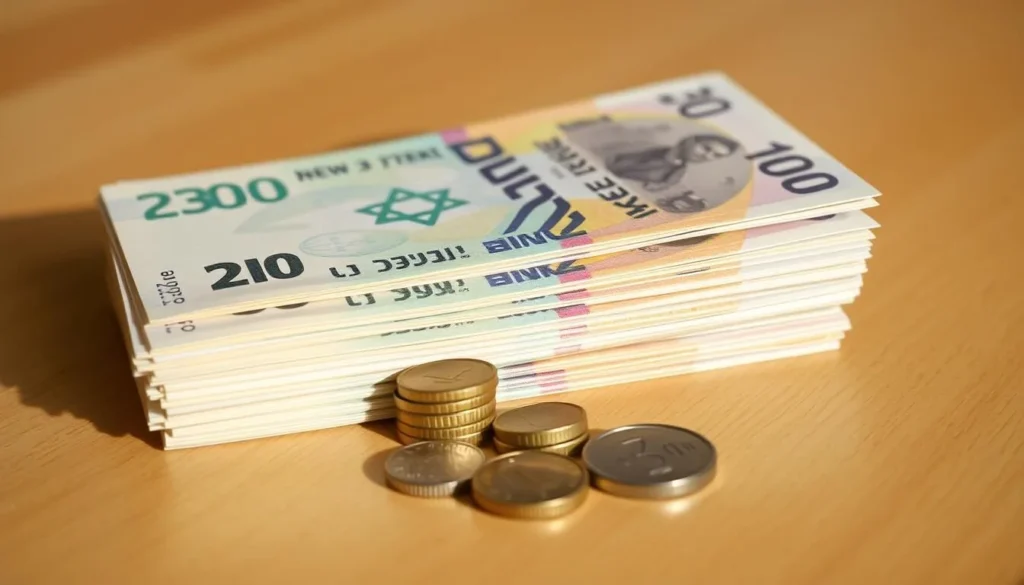
Planning Your Currency Strategy Before Your Trip
Before traveling to Israel, planning your currency strategy is crucial for a stress-free trip. Understanding how to manage your money abroad can help you avoid unnecessary fees and ensure a smooth journey.
Should You Exchange Money Before Traveling?
Exchanging some money before your trip can be beneficial. You’ll have local currency, Israeli Shekels (ILS), upon arrival. However, it’s vital to understand the exchange rates and fees associated with exchanging currency.
Understanding Exchange Rates
Tracking the mid-market rate is essential. This rate is used by banks and financial institutions to exchange currencies. By understanding this rate, you can make informed decisions about when to exchange your money, ensuring you get the best deal.
Best Currency to Take to Israel
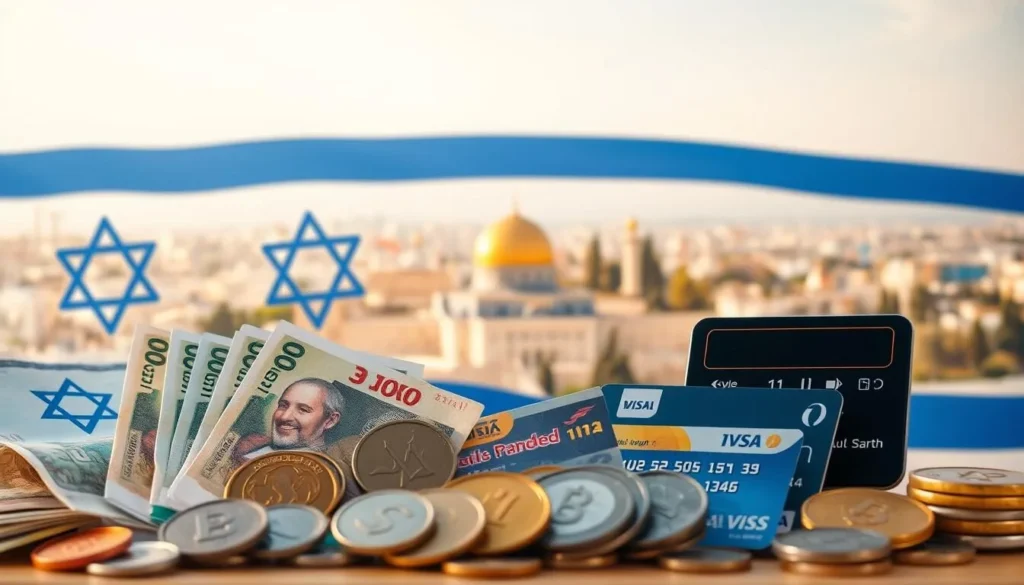
Understanding the best currency to take to Israel can simplify your travel experience. While you’re in Israel, you’ll only be able to spend in Israeli New Shekels (ILS). Carrying some money in cash and using a travel debit card from a service like Wise is usually the best way to spend while you’re away from home.
Using US Dollars in Israel: What You Need to Know
US Dollars are widely recognized, but their acceptance is limited to certain areas. Some high-end hotels and international chains may accept payment in US Dollars, but this is not common practice in Israel. You’ll generally need to exchange your money for Shekels.
Other Foreign Currencies and Their Acceptance
Beyond US Dollars, other major currencies like Euros, British Pounds, and Canadian Dollars have limited acceptance in Israel. The ease of exchanging these currencies varies; Euros and British Pounds are relatively straightforward to convert, while less common currencies may result in less favorable rates. Credit cards from international networks provide a practical alternative, handling the conversion automatically.
Cash vs. Cards: Payment Methods in Israel
To navigate Israel like a local, you need to know when to use cash and when to use cards. The country has embraced various payment methods, making it relatively easy for tourists to manage their expenses.
Where Cash is Still King in Israel
While many places in Israel accept card payments, there are still instances where cash is preferred or even necessary. For smaller purchases, such as buying from street vendors or at local markets, cash is often the only accepted payment method. Additionally, some traditional or family-owned businesses might not accept credit or debit cards. It’s a good idea to have some local currency, the Israeli New Shekel (ILS), for these situations.
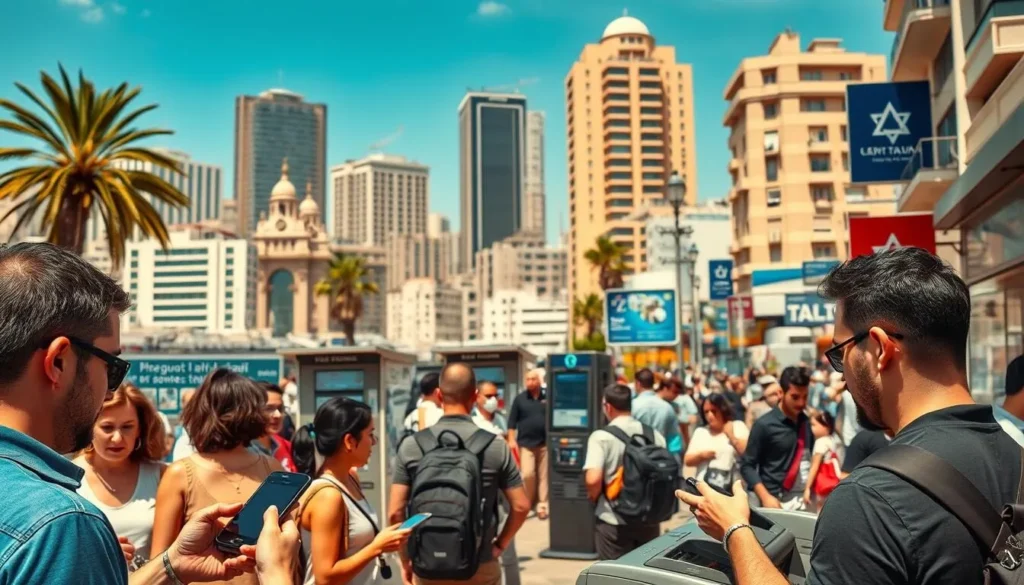
Card Acceptance Throughout Israel
Credit and debit cards are widely accepted in Israel, particularly in urban areas like Tel Aviv and Jerusalem. Major brands such as Visa and Mastercard are commonly accepted at hotels, restaurants, and retail stores. You can also use your card for transportation, including buses and trains, making it convenient to get around. Contactless payment technology is also widely available, allowing for quick and convenient transactions. While American Express and Discover are accepted at some places, they are not as widely accepted as Visa and Mastercard.
Finding the Best Places to Exchange Currency in Israel
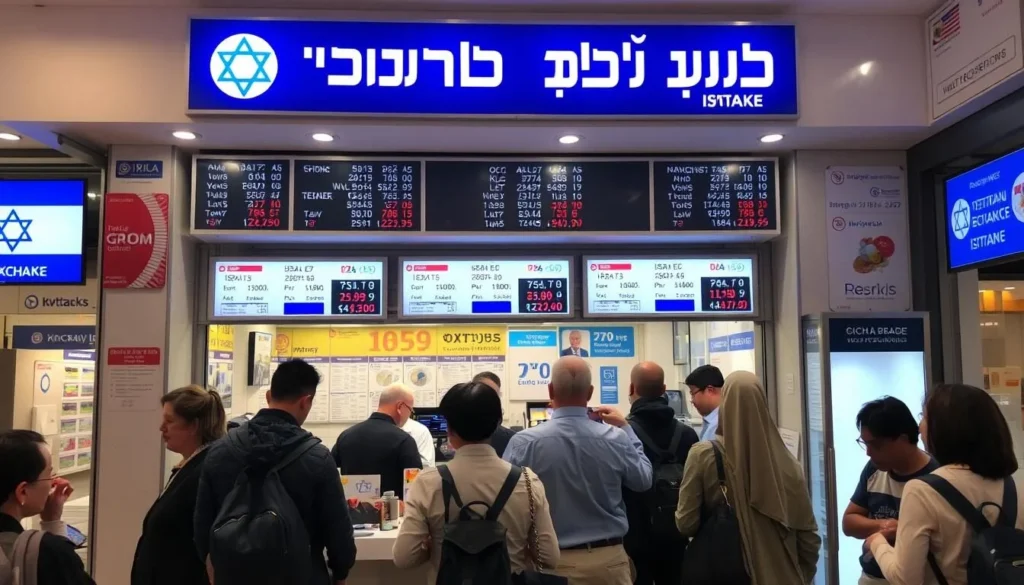
Getting the best exchange rate in Israel requires knowing where to exchange your money. You have a couple of options to obtain Israeli Shekels (ILS), including using a travel debit card or exchanging cash upon arrival.
Airport Exchange Services: Convenience vs. Cost
Airport exchange services offer convenience but often at a higher cost. While it’s easy to exchange your money as soon as you arrive, the rates at airports tend to be less favorable compared to city centers.
Be aware that airport exchange offices typically charge higher fees, making your trip more expensive.
City Centers and Banks: Better Rates and Options
City centers, particularly in Jerusalem and Tel Aviv, offer more competitive exchange rates. Private exchange offices often provide better deals than banks, especially in areas with high competition.
Some key points to consider:
- Currency exchange offices in city centers offer more competitive rates than airports or hotels.
- Private exchange offices can provide better rates than banks, especially in competitive areas.
- Banks offer reliable rates but may have limited hours and charge fees for non-account holders.
- Shopping around can yield significantly better rates, with differences of 3-5% not uncommon.
- Some offices offer better rates for larger transactions, so consolidating exchanges can be advantageous for travelers.
ATM Withdrawals: A Smart Option for Getting Shekels
When traveling to Israel, managing your finances effectively is crucial. One convenient way to access your money is through ATMs.
Finding ATMs in Israel
Israel has a well-developed banking system with ATMs widely available.
| Location | Availability | Acceptance |
|---|---|---|
| City Centers | High | Widelly accepted |
| Rural Areas | Moderate | Limited |
| Tourist Areas | High | Widelly accepted |
Understanding ATM Fees
Be aware that using an ATM in Israel may incur fees from both your bank and the ATM operator. Consider using a debit card designed for international travel to minimize costs.
By understanding how to use ATMs effectively, you can save money on fees and have a smoother trip.
Travel Cards and Digital Payment Solutions
Traveling to Israel can be a fascinating experience, and having the right payment methods can make a significant difference. In this section, we’ll explore the best travel cards and digital payment solutions to help you navigate your trip with ease.
Wise and Revolut: Your Travel Debit Card Options
Wise and Revolut are two popular services that offer debit cards for travelers. Both provide a convenient and cost-effective way to manage your finances abroad. With Wise, you can enjoy low fees and mid-market exchange rates, making it an excellent choice for those looking to save on currency conversion costs.
Revolut also offers real-time exchange rates and a user-friendly app to manage your spending on the go.
Digital Payment Solutions
Digital wallets like Apple Pay, Google Pay, and Samsung Pay are becoming increasingly accepted in Israel, particularly in major cities like Tel Aviv and Jerusalem.
To get the most out of your trip, consider using a combination of payment methods, including cash, cards, and digital wallets.
Avoiding Common Currency Exchange Pitfalls
When traveling to Israel, it’s crucial to be aware of the potential currency exchange pitfalls that can inflate your expenses. Being informed is the first step to making the most of your money.
Dynamic Currency Conversion: The Hidden Fee
Dynamic Currency Conversion (DCC) is a service that allows merchants to convert your purchase into your home currency, supposedly for convenience. However, this often comes with unfavorable exchange rates and additional fees. When making a purchase in Israel, always choose to be charged in the local currency (ILS) to avoid DCC fees.
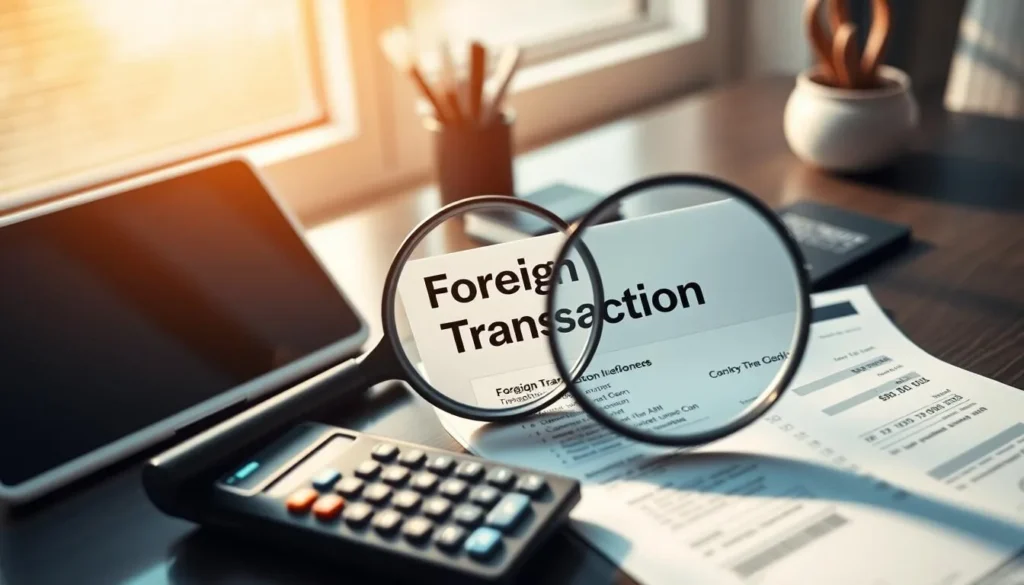
Foreign Transaction Fees: What to Watch For
Many credit and debit card issuers charge foreign transaction fees when you make purchases in a currency different from your card’s base currency. These fees can range from 1-3% of each transaction. To avoid or minimize these fees, consider using a travel debit card or a credit card that waives foreign transaction fees.
| Card Type | Foreign Transaction Fees |
|---|---|
| Traditional Bank Cards | 1-3% |
| Travel Debit Cards (e.g., Wise, Revolut) | 0.5-1% |
| Travel-Focused Credit Cards | 0% |
By understanding these common pitfalls and taking steps to avoid them, you can save money and enjoy a more financially stress-free trip to Israel.
Israel: Ultimate Travelers Guide to Currencies & Payments for Different Regions
From the bustling streets of Tel Aviv to the serene landscapes of the Galilee, Israel’s payment landscape varies greatly. As you travel across the country, understanding the local currency and payment preferences is crucial for a smooth experience.
Tel Aviv and Jerusalem: Urban Payment Expectations
In urban centers like Tel Aviv and Jerusalem, you’ll find that card payments are widely accepted. Most businesses, from restaurants to shops, have card terminals, making it convenient to pay without cash. However, it’s still a good idea to have some local currency, the Israeli New Shekel (ILS), for small purchases or at traditional markets.
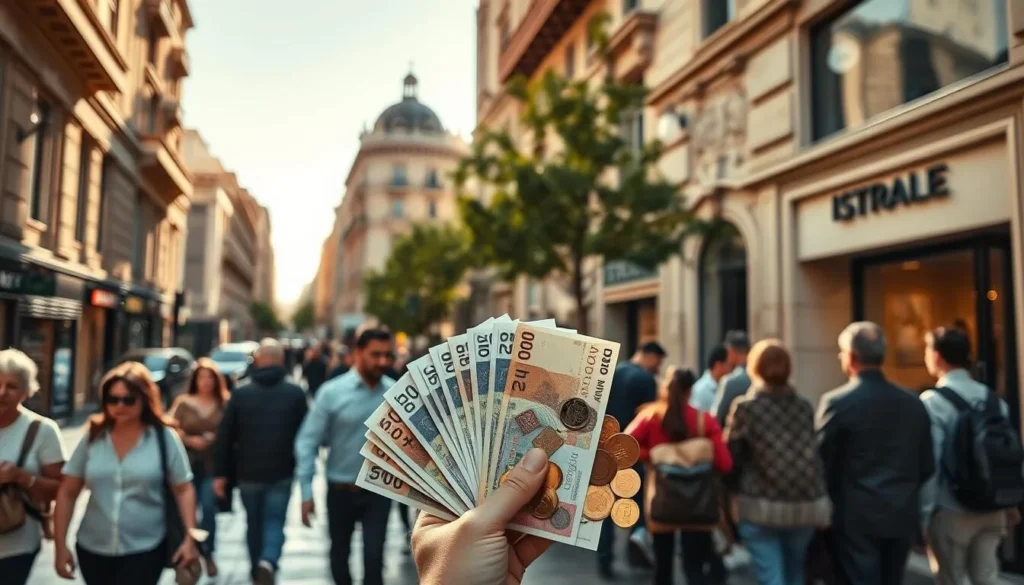
Rural Areas and Small Towns: Be Prepared
When venturing into rural areas and small towns, the way you make payments may differ. In places like the Galilee region or the Negev Desert, cash is often preferred, and currency exchange options might be limited. It’s advisable to have sufficient local currency for these areas. A comparison of payment methods in different regions is shown below:
| Region | Card Acceptance | Cash Preference |
|---|---|---|
| Urban Centers | High | Low |
| Rural Areas | Low | High |
By being aware of these differences and having a mix of payment methods, you can enjoy your travel in Israel without any financial hiccups, exploring various places with ease.
Tipping Culture and Small Expenses in Israel
When traveling to Israel, understanding the local customs regarding tipping and handling small expenses can enhance your experience. Tipping culture in Israel is generally less than in the United States, but it’s still an important aspect of showing appreciation for good service.
Appropriate Tipping Amounts
For tour guides, a tip of 10-15 shekels per person is considered standard for a half-day tour. For restaurant service, tipping around 10% of the total bill is customary, though not mandatory. When it comes to taxi rides, rounding up the fare to the nearest shekel is a common practice.
Handling Small Purchases
For small purchases, having some local currency, the Israeli shekel, is advisable. Many vendors, especially at markets like Mahane Yehuda in Jerusalem or Carmel Market in Tel Aviv, may not accept large bills or credit cards. It’s also worth noting that some vendors may offer discounts for cash payments, making it beneficial to have some local currency on hand.
Conclusion: Making the Most of Your Money in Israel
As you prepare for your trip to Israel, understanding the local currency and payment methods is crucial for a stress-free journey. To make the most of your travel experience, it’s essential to be aware of the Israeli New Shekel (ILS) and how it works. Here are the key takeaways to ensure a smooth trip:
Planning your currency strategy is vital; the Israeli Shekel is the primary currency you’ll need. You should combine a travel debit card with some cash and a credit card for backup. Be aware of Dynamic Currency Conversion and avoid it to save on unnecessary fees.
Understanding regional differences in payment preferences can help you navigate urban and rural areas with ease. Familiarize yourself with local tipping customs to avoid any confusion.
By being informed and prepared, you can enjoy your time exploring Israel without financial stress. With the right preparation, you’ll be free to immerse yourself in the rich history, diverse culture, and breathtaking landscapes that Israel has to offer.
—
The above is subject to change.
Check back often to TRAVEL.COM for the latest travel tips and deals.
